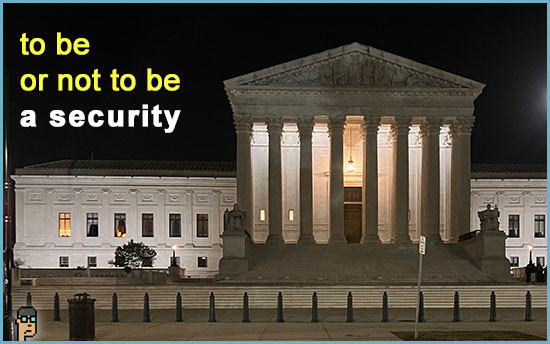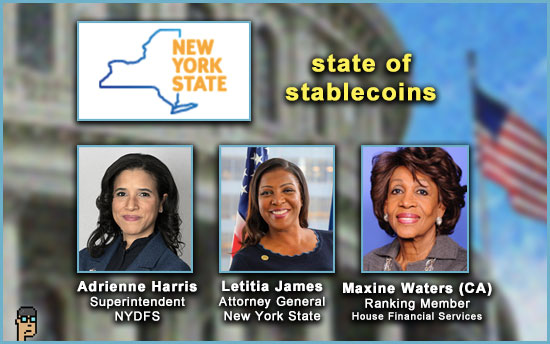Fed oversight for crypto
Late yesterday, the Federal Reserve announced a more detailed regime for banks offering, or considering offering, crypto products – or as the Fed terms it – the “novel activities supervision program.” Read the press release.
Among the regime’s elements subject to supervision:
-
- “Complex, technology-driven partnerships with non-banks to provide banking services…”
- “Crypto-asset related activities…”
- Projects that use [distribute ledger technology] with the potential for significant impact on the financial system…”
- “Concentrated provision of banking services to crypto-asset-related entities and fintechs…”
Adding to the warning to banks, “The Program will be risk-based, and the level and intensity of supervision will vary based on the level of engagement in novel activities by each supervised banking organization.” The more a bank adds digital asset products, the more it receives supervision by the Federal Reserve.
The announcement is reminiscent of the January 3 warning titled, “Joint Statement on Crypto-Asset Risks to Banking Organizations” by the Fed, Office of the Comptroller of the Currency (OCC) and the Federal Deposit Insurance Corporation (FDIC). See that one (PDF).
The Fed claims in yesterday’s announcement that it’s supporting innovation, but remains – at best – cautious stating, “The goal of the novel activities supervision program is to foster the benefits of financial innovation while recognizing and appropriately addressing risks to ensure the safety and soundness of the banking system.”
As Reuters notes, stablecoins are an important element of the directive, perhaps inspired by Monday’s PayPal stablecoin announcement. “For banks to receive a written non-objection to be able to engage with stabelcoins, banks should demonstrate appropriate risk management, including having systems in place to identify and monitor any potential risks, including cybersecurity and illicit finance threats,” reports Reuters. Read more.
more tips:
Letter SR 23-7: Creation of Novel Activities Supervision Program – FederalReserve.gov
Letter SR 23-8 / CA 23-5: Supervisory Nonobjection Process for State Member Banks Seeking to Engage in Certain Activities Involving Dollar Tokens (stablecoins) – FederalReserve.gov Continue reading “Fed Starts Crypto Activities Supervision Program; SEC Accounting Regime Attracts Criticism”








